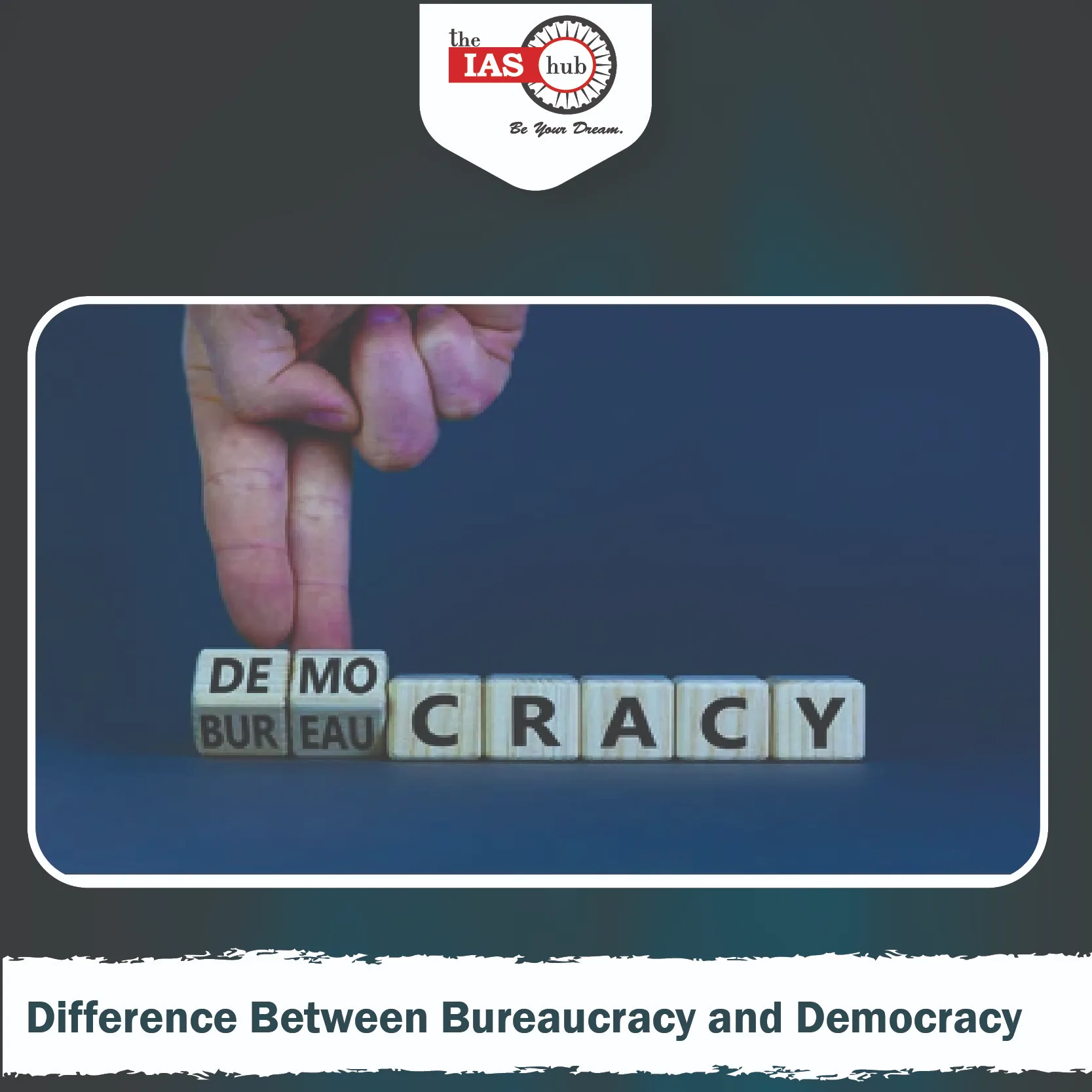Understand the key differences between bureaucracy and democracy, and their roles in governance. Learn about democracy, bureaucracy, and their relationship.


Governance plays a crucial role in running a country, and different systems help in managing administrative tasks efficiently. Two major systems of governance are bureaucracy and democracy. While democracy allows people to participate in decision-making, bureaucracy ensures smooth functioning through a structured administrative framework. Understanding the difference between bureaucracy and democracy is essential to know how governments function.
Democracy and bureaucracy are two distinct systems that work together in governance. Democracy is a form of government where the power lies with the people, who elect representatives to make decisions. On the other hand, bureaucracy is an administrative system that implements government policies. While democracy ensures participation, bureaucracy ensures efficiency.
Democracy is a system of government where the power rests with the people. Citizens elect leaders who make laws and policies on their behalf. It promotes equality, freedom, and participation in decision-making. There are two main types of democracy:
Bureaucracy is a system of administration that follows a fixed set of rules and hierarchy. It consists of government officials and agencies that implement laws and policies made by the government. Bureaucracy ensures systematic governance and is characterized by hierarchy, job specialization, and adherence to rules.
Below is a table highlighting the major differences between bureaucracy and democracy:
| Aspect | Democracy | Bureaucracy |
| Definition | A system where people elect leaders to govern. | A structured administrative system that implements policies. |
| Power Source | Citizens hold power through voting. | Officials and agencies appointed by the government. |
| Decision-Making | Made by elected representatives. | Made by government officials based on policies. |
| Flexibility | Flexible and changes with public opinion. | Follows a fixed set of rules and procedures. |
| Accountability | Representatives are accountable to the public. | Bureaucrats are accountable to the government. |
| Role in Governance | Governs the country by making policies. | Implements and enforces government policies. |
Are you preparing for UPSC 2025? Join IAShub’s UPSC coaching batches to boost your preparation. Enroll now!
Democracy is a system of government where power lies with the people, either directly or through elected representatives. It is based on principles like political equality, participation, and the rule of law.
Bureaucracy is a structured administrative system responsible for implementing government policies. It operates on principles of hierarchy, specialization, and rule-based functioning to ensure efficiency in governance.
Bureaucracy implements policies, provides public services, enforces laws, supports decision-making, and maintains governance records. It ensures administrative continuity and efficiency in public administration.
The Indian bureaucracy follows a hierarchical system with the All India Services (IAS, IPS, IFS) and other Central and State Services. It operates at different levels—central, state, and district—handling policy formulation, law enforcement, and public service delivery under constitutional provisions.


Refine your answer writing skills and elevate your UPSC preparation with personalized support and expert feedback.
Fill out the form to get started with the program or any other enquiries !








Are you dreaming of becoming an IAS officer? Then, IAShub can be your best guide. It is one of the Best IAS Coaching in Delhi. Many students who want to clear the UPSC exam join IAShub for learning. The institute gives both online and offline classes. Their teachers are experienced and helpful. They easily explain every topic. Students also get notes, tests, and tips to do well in the exam.
IAShub is in Delhi and is trusted by many UPSC students. It offers coaching for every part of the UPSC exam – Prelims, Mains, and Interview. The classes are simple and easy to understand. The teachers are experts and guide students in the right way. IAShub is also known for its helpful notes, test series, and answer-writing practice. IAShub is the best coaching in Delhi and also gives UPSC Online Classes. This helps students from any place in India to learn. The online classes are live and also recorded. So, students can watch them anytime. These classes cover the full UPSC syllabus.
Here are some important services provided by IAShub:
The UPSC Civil Services Exam has three parts:
This exam is tough, but with the right guidance, it becomes easy to manage. Students must study smart and stay regular.
IAShub supports students from the beginning to the end. It gives the right books, tests, and notes. The classes are easy to follow, and the teachers are always ready to help. Students get personal doubt sessions too. The test series and answer checking help students learn where they need to do better. Also, free study materials save time and money.
IAShub also guides students during the final stage – the interview. Experts take mock interviews and give useful tips. This full support makes IAShub one of the best IAS coaching in Delhi.
